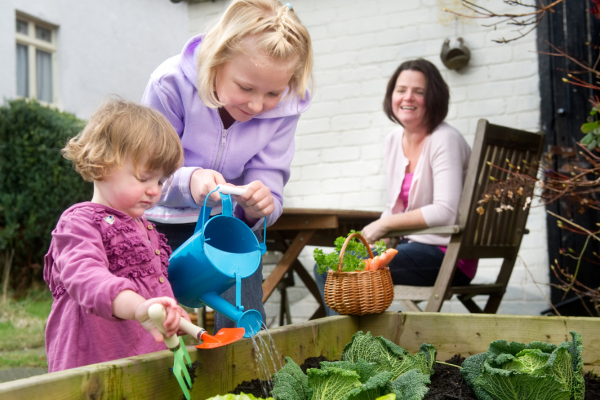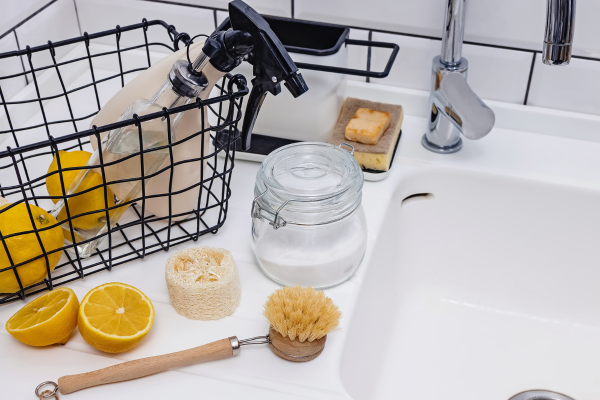Choosing a sustainable lifestyle

In an era of increasing environmental awareness, living sustainably has become a pressing need. Making small changes at home can have a significant positive impact on the planet and help create a greener future for all. Whether you're an individual or a family, here are ten practical and creative tips to embrace sustainable living in the UK.
- Reduce Energy Consumption: Start by making your home more energy-efficient. Switch to energy-saving light bulbs, unplug electronics when not in use, and install a programmable thermostat to optimise heating and cooling. Additionally, consider insulating your home to minimise heat loss. The Energy Saving Trust offers further guidance on energy-efficient practices.
- Embrace Renewable Energy: Explore renewable energy options for your home, such as solar panels or wind turbines. These sources of clean energy can reduce your reliance on fossil fuels and lower your carbon footprint. The UK Government's website provides information on available incentives and grants.

- Conserve Water: Install water-efficient fixtures like low-flow showerheads and dual-flush toilets to reduce water consumption. Collect rainwater for gardening and consider using a water metre to monitor usage. Thames Water's website offers water-saving tips specific to the UK.
- Practice Waste Reduction: Adopt a zero-waste mindset by minimising single-use items. Opt for reusable shopping bags, water bottles, and coffee cups. Recycle paper, glass, plastics, and other materials diligently. For inspiration and practical advice, visit this Earth Day blog on plastic pollution.
- Compost Organic Waste: Convert food scraps and garden waste into nutrient-rich compost. Composting reduces landfill waste while providing valuable nourishment for your garden. The Royal Horticultural Society offers guidance on composting techniques.

- Grow Your Own Food: Cultivate a small vegetable garden or grow herbs and fruits in pots. It reduces food miles, promotes organic practices, and enhances your connection to nature. The Royal Horticultural Society provides useful resources on starting your own garden.
- Choose Sustainable Products: Opt for eco-friendly alternatives when shopping. Look for products with minimal packaging, made from recycled materials, or carrying eco-certifications such as FSC (Forest Stewardship Council) for wood products or Fairtrade for ethical consumer goods. Ethical Consumer is a helpful resource for identifying sustainable brands.
- Support Local and Seasonal Produce: Purchase locally grown, seasonal produce from farmers' markets or join a community-supported agriculture (CSA) scheme. By supporting local farmers, you contribute to the local economy, reduce food miles, and enjoy fresh, nutritious food. The Soil Association's website can help you find organic food providers near you.

- Practice Conscious Cleaning: Replace chemical-laden cleaning products with environmentally friendly alternatives. Utilise homemade solutions like vinegar and baking soda for cleaning tasks. Explore ethical cleaning product brands like Ecover or Bio-D.
- Embrace Sustainable Transportation: Opt for greener modes of transport whenever possible. Walk or cycle for short distances, use public transportation, or carpool with neighbours or colleagues. Transitioning to electric vehicles or hybrids can also reduce your carbon footprint. The UK Government's website provides information on electric vehicle grants and charging infrastructure.
Living sustainably is a journey, and every step counts. By implementing these ten tips, you can significantly contribute to a more sustainable lifestyle at home in the UK. Remember, small actions lead to big changes, and inspiring others to follow suit amplifies the positive impact. Let's work together to build a greener and brighter future for ourselves and the generations to come.
This blog was written by our environmental partner, GreenTheUK.
Looking for advice?
If you're looking to let or sell your property, we can help. Get in touch with your local branch or book in for a property valuation.

Contact Us
Got a question, general enquiry or something else?
You may also like
Since we started in 2001 we have grown to three branches across Cardiff, we can save you time and money by offering a range of services and expertise under one roof.



